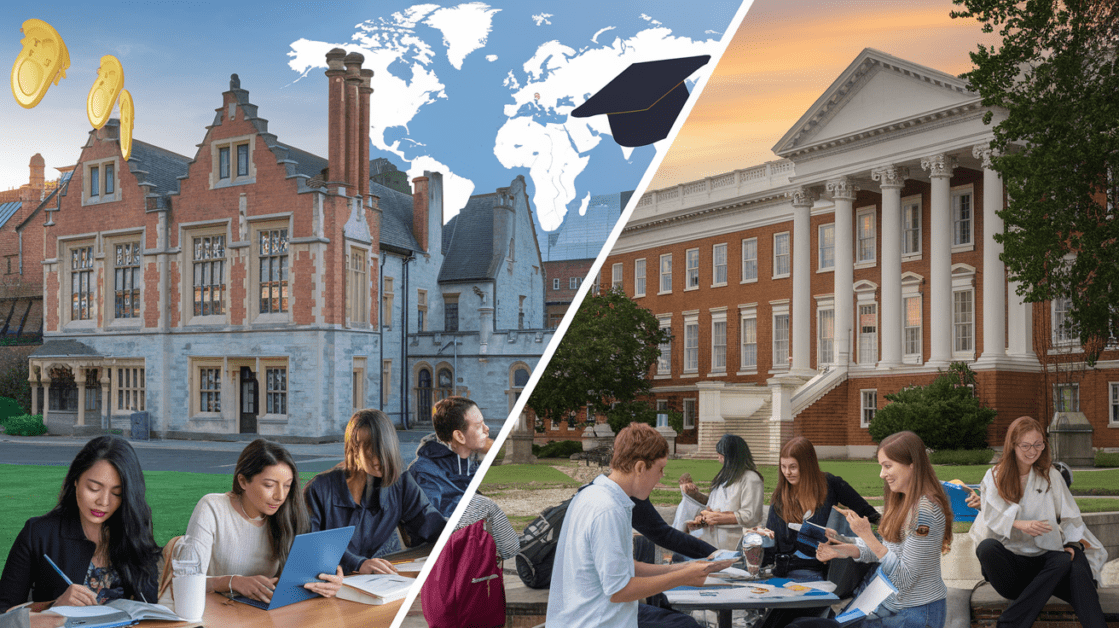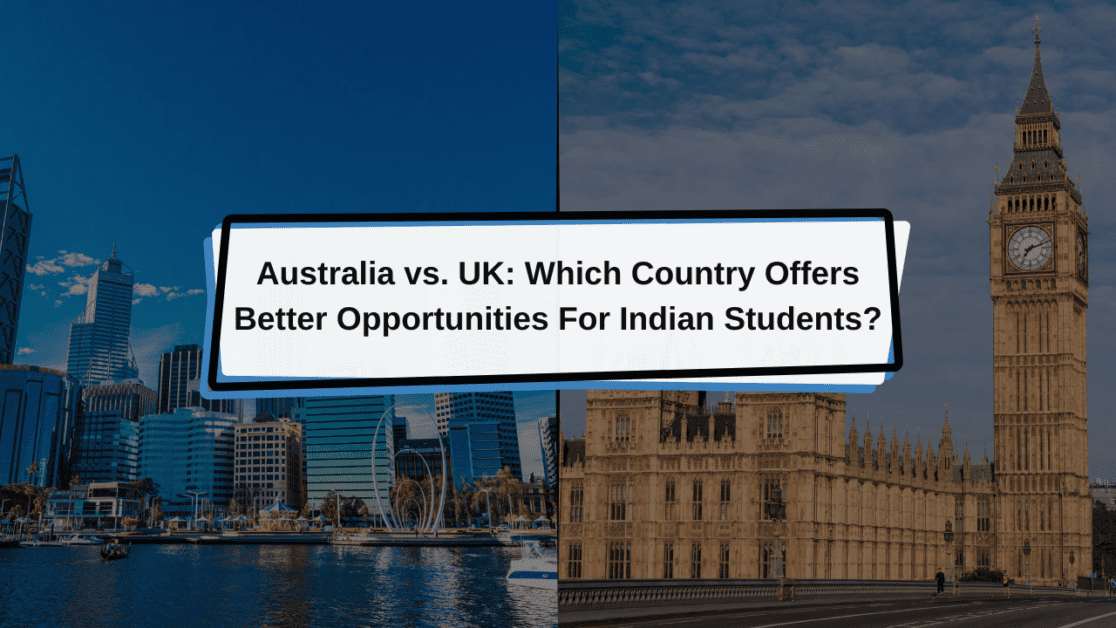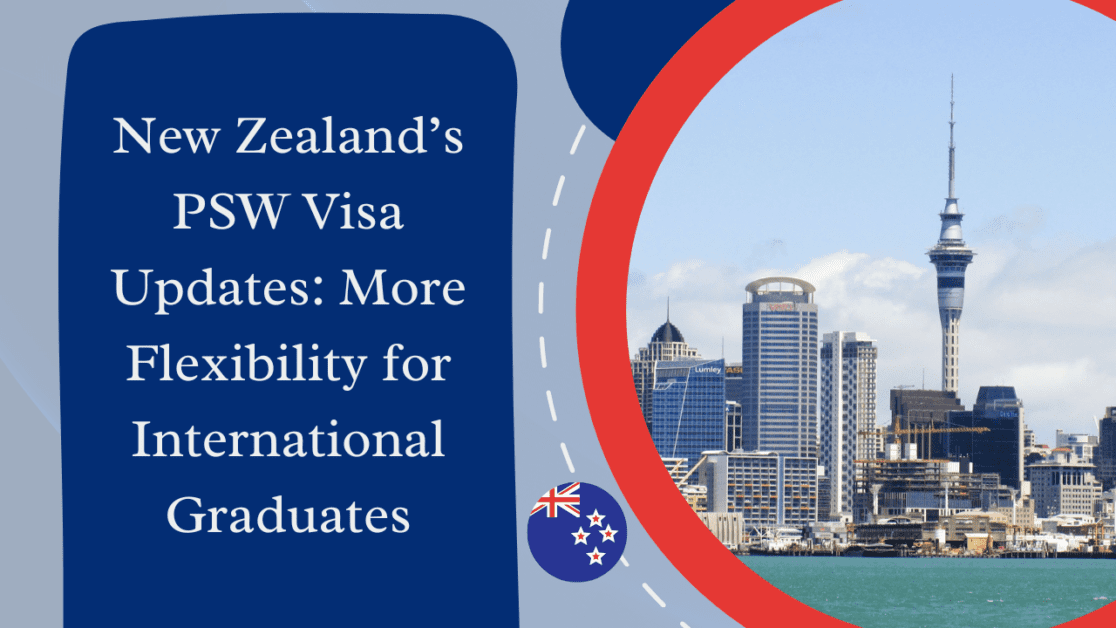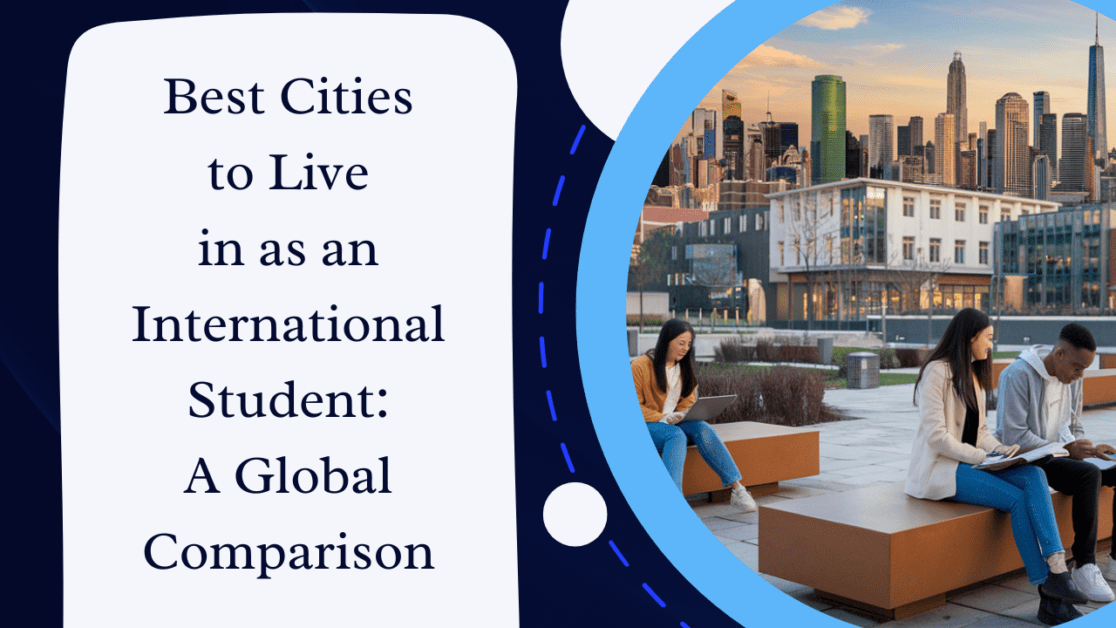
Choosing the perfect city for international studies can make or break a student’s academic journey. With over 5.6 million students studying abroad globally, the pressure to select the right destination has never been more intense. From world-class universities to vibrant cultural scenes, each city offers a unique blend of opportunities and challenges.
The quest for the ideal student city extends far beyond just educational excellence. Today’s international students seek destinations that offer the perfect balance of academic prestige, affordable living costs, and robust support systems. While London, Melbourne, and Toronto consistently rank among top choices, emerging educational hubs in Asia and Europe are rapidly transforming the global education landscape.
This comprehensive guide explores the world’s most student-friendly cities, analyzing everything from academic standards to post-graduation opportunities. Discover how factors like cost of living, safety ratings, cultural diversity, and career prospects shape the ultimate student experience across different global destinations.
Key Factors in Choosing a Student City

Cost of Living and Housing Options
The financial aspect of studying abroad significantly impacts the overall student experience. Housing costs typically constitute 30-40% of monthly expenses, varying dramatically between cities.
Housing Type | Average Monthly Cost (USD) | Typical Features |
|---|---|---|
University Dorms | $300-800 | Utilities included, communal facilities |
Shared Apartments | $400-1200 | Split costs, independent living |
Studio Apartments | $700-2000 | Privacy, higher utilities |
Quality of Universities
Academic excellence remains paramount when selecting a study destination. Key indicators include:
International university rankings
Research output and facilities
Student-to-faculty ratio
Industry partnerships
Academic support services
Student Visa Policies
Immigration regulations vary significantly across countries, affecting:
Visa processing times and costs
Documentation requirements
Duration of stay permissions
Post-study work rights
Healthcare coverage requirements
Part-time Work Opportunities
Employment options during studies contribute to both financial sustainability and practical experience. Essential considerations include:
Maximum weekly working hours allowed on student visas
Minimum wage regulations
On-campus employment availability
Industry internship opportunities
Language requirements for local jobs
Now that the fundamental factors have been established, let’s examine specific cities that excel in academic excellence and educational quality.
Top Cities for Academic Excellence
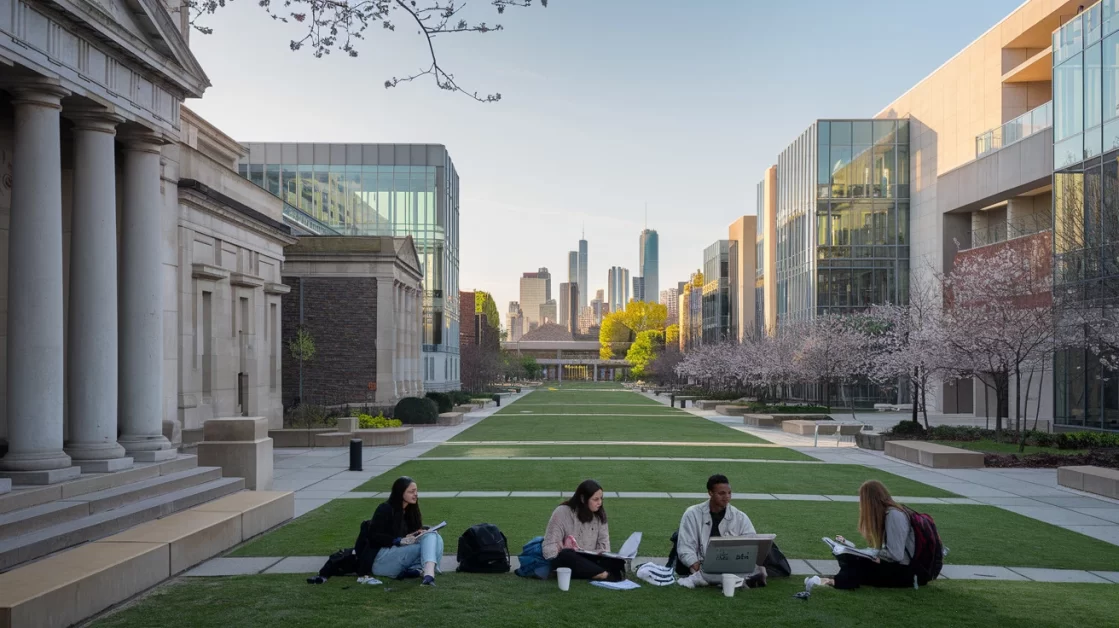
London’s Educational Hub
London stands as a beacon of academic excellence, hosting prestigious institutions like Imperial College, LSE, and UCL. The city’s concentrated academic ecosystem offers:
Access to world-class libraries
Collaboration opportunities with leading researchers
Cross-institutional study options
Regular academic conferences and seminars
Melbourne’s Research Facilities
Melbourne’s research infrastructure ranks among the world’s finest, particularly in:
Biomedical sciences
Environmental studies
Technology innovation
Social sciences research centers
Boston’s Innovation Environment
Boston’s academic landscape thrives on innovation, featuring:
MIT-Harvard research collaborations
Biotechnology research hubs
Startup incubators within universities
Advanced STEM facilities
Toronto’s Diverse Programs
Toronto excels in program diversity and specialized education:
Field of Study | Notable Features |
|---|---|
Business | International focus |
Technology | Industry partnerships |
Healthcare | Research hospitals |
Arts | Cultural integration |
Munich’s Free Education
Munich offers exceptional value through:
Tuition-free education at public universities
State-of-the-art laboratories
Technical excellence in engineering
International research partnerships
These academic powerhouses consistently rank among global education leaders, each offering unique strengths. While London excels in comprehensive academic resources, Melbourne focuses on research excellence. Boston drives innovation, Toronto provides diverse specializations, and Munich combines academic quality with affordability.
Now, let’s examine how these educational advantages align with student living costs in various global cities.
Affordability Champions
Berlin’s Student-Friendly Costs
Berlin stands out as a remarkably affordable metropolis for international students. The German capital offers free public universities for both domestic and international students, with only minimal semester fees ranging from €150-350. Housing costs remain reasonable, with student dormitories averaging €250-400 monthly.
Expense Category | Monthly Cost (EUR) |
|---|---|
Student Housing | 250-400 |
Food & Groceries | 200-300 |
Public Transport | 80 |
Entertainment | 100-150 |
Taipei’s Economic Living
Taipei combines Asian efficiency with exceptional affordability. Tuition fees at top universities range from $3,000-4,000 annually, significantly lower than other Asian education hubs. The city’s cost structure makes daily living manageable for students:
Night market meals for €2-4
Student accommodations from €150-300 monthly
Efficient public transport with student discounts
Affordable healthcare coverage
Montreal’s Balance of Quality and Cost
Montreal emerges as North America’s budget-friendly student destination. Quebec’s tuition policies favor international students with lower rates than other Canadian cities. The city offers:
Subsidized student housing programs
Comprehensive public transportation system
Affordable dining options in student districts
Part-time work opportunities with favorable minimum wage
The average monthly student budget in Montreal ranges from CAD 1,000-1,500, excluding tuition, making it significantly more affordable than Toronto or Vancouver. The city’s bilingual nature adds value without adding cost, providing cultural enrichment alongside economic benefits.
Moving beyond pure economics, the cultural experiences these affordable cities offer create an enriching educational environment.
Cultural Experience and Safety
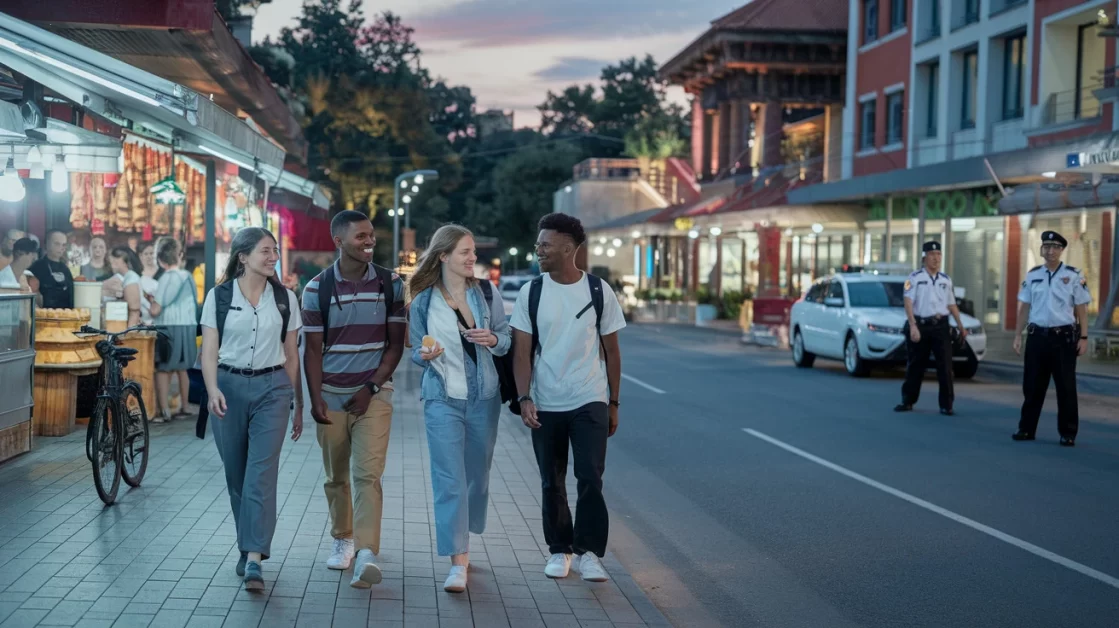
Student Population Diversity
International education hubs thrive on diverse student populations, creating vibrant multicultural environments. Leading cities demonstrate this through:
Cultural representation from 100+ nationalities
Multicultural student organizations and clubs
International food courts and cultural festivals
Cross-cultural academic collaboration opportunities
Local Culture Integration
Successful integration into local communities enhances the study abroad experience. Key aspects include:
Cultural orientation programs
Local buddy systems
Community engagement initiatives
Cultural exchange events
Crime Rates and Safety Measures
City Safety Factors | Implementation |
|---|---|
Campus Security | 24/7 patrol systems |
Emergency Response | Dedicated student helplines |
Safe Transport | Night shuttle services |
Safety Apps | GPS-enabled tracking |
Language Support Services
Comprehensive language assistance ensures academic success and cultural adaptation:
Free language exchange programs
Academic writing centers
Multilingual support staff
Translation services for official documents
Cities excelling in these areas typically implement integrated safety monitoring systems and cultural support networks. Advanced security infrastructure includes CCTV coverage, emergency response teams, and student-specific safety protocols. Regular safety audits and feedback mechanisms help maintain high security standards while fostering cultural integration.
Students seeking safe and culturally enriching environments should evaluate cities based on their track record in managing diverse student populations and maintaining robust security measures. These factors significantly impact the overall study abroad experience and academic success. The quality of student support infrastructure plays a crucial role in ensuring a smooth transition and comfortable stay.
Student Support Infrastructure
Public Transportation
International students heavily rely on efficient public transportation systems for their daily commutes. Cities with integrated transport networks offer significant advantages:
-
Metro/subway systems with student discounts
-
Extensive bus routes covering university districts
-
Night service options for late-study sessions
-
Digital payment systems and route planning apps
|
Transport Feature |
Student Benefits |
|---|---|
|
Monthly passes |
30-70% discounts |
|
Multi-modal integration |
Seamless transfers |
|
Airport connections |
Easy travel access |
|
Real-time tracking |
Better time management |
Healthcare Access
Quality healthcare infrastructure is crucial for international student wellbeing. Leading student cities provide:
-
On-campus medical facilities
-
Student health insurance coverage
-
Multi-language medical services
-
Mental health support systems
International Student Services
Comprehensive support services distinguish top student destinations from others. Essential services include:
-
Dedicated international student offices
-
Visa assistance and documentation support
-
Language support programs
-
Cultural integration activities
-
Banking and accommodation guidance
Modern student cities excel in providing digital solutions for these services, offering mobile apps and online platforms for easy access. The most successful destinations maintain strong partnerships between universities, local authorities, and private service providers to create seamless support networks. Cities investing in technological infrastructure particularly stand out, offering smart city solutions that enhance the student experience through improved connectivity and service accessibility.
Student support infrastructure serves as a foundation for academic success and personal well-being. Career prospects and networking opportunities build upon this foundation to create pathways for professional development.
Career Prospects and Networking

Industry Connections
Leading global cities offer exceptional industry connections through strategic partnerships between universities and corporations. Key benefits include:
Direct access to multinational companies
Regular industry events and career fairs
Professional mentorship programs
Company-sponsored research projects
Post-Study Work Visas
Work visa policies significantly impact career prospects for international graduates:
City/Country | Post-Study Work Duration | Key Requirements |
|---|---|---|
London, UK | 2 years | Graduate degree completion |
Toronto, Canada | Up to 3 years | Program length-dependent |
Melbourne, Australia | 2-4 years | Qualification level-based |
Singapore | 1-3 years | Salary threshold criteria |
Alumni Networks
Strategic cities maintain robust alumni networks that facilitate:
Global professional connections
Industry-specific mentoring
Job referral systems
Networking events and conferences
Internship Opportunities
Leading student cities provide structured internship programs through:
Dedicated career service centers
Industry placement programs
Start-up incubators
Research institutions
These cities cultivate environments where academic excellence meets professional development. Established business hubs like London, Singapore, and Toronto consistently rank highest for career opportunities, offering specialized industry zones, innovation districts, and technology parks. The presence of international organizations and start-up ecosystems creates diverse employment pathways for graduates. Additionally, government initiatives supporting international talent retention enhance long-term career prospects.
Conclusion
Selecting the ideal city for international studies requires careful consideration of multiple factors, from academic reputation and living costs to cultural experiences and career opportunities. Cities like Melbourne, London, and Montreal have consistently demonstrated their ability to provide world-class education while fostering diverse, inclusive communities that support student growth and development. The comprehensive infrastructure, safety measures, and robust support systems in these destinations create an environment where international students can thrive both academically and personally.
The future of global education continues to evolve, with emerging student cities rising to meet international standards. For aspiring international students, the key to making the right choice lies in aligning personal priorities with what each city offers. Whether prioritizing academic excellence, affordability, cultural immersion, or career prospects, today’s global education landscape presents numerous opportunities for a rewarding international study experience.
Frequently Asked Questions (FAQ)
What factors should I consider when choosing a city as an international student?
You should consider:
- Cost of living (accommodation, food, transportation).
- Quality of education and university rankings.
- Availability of part-time job opportunities.
- Safety and inclusivity of the city.
- Accessibility of public transport.
- Cultural diversity and lifestyle preferences.
Which are the most affordable cities for international students?
Cities like Warsaw (Poland), Kuala Lumpur (Malaysia), and Budapest (Hungary) are budget-friendly options, offering affordable tuition fees and living costs compared to other popular destinations.
What are the top cities for international students in the UK?
The UK offers excellent student cities such as:
- London: Known for its world-class universities and vibrant cultural scene.
- Manchester: Famous for its diverse student population and lively environment.
- Edinburgh: Offers a unique blend of history, education, and natural beauty.
Are there any student-friendly cities in the USA?
Yes, cities like:
- Boston, Massachusetts: Home to top universities like MIT and Harvard.
- Austin, Texas: Known for its lively atmosphere and affordable living.
- San Diego, California: Offers a coastal lifestyle with excellent universities.
Which cities in Europe are best for international students?
Popular European cities include:
- Berlin, Germany: Known for free or low-cost education and a thriving arts scene.
- Paris, France: Offers world-renowned universities and cultural richness.
- Amsterdam, Netherlands: Famous for its international community and quality education.
Are there any emerging cities becoming popular among international students?
Yes, cities like Lisbon (Portugal), Riga (Latvia), and Prague (Czech Republic) are gaining popularity due to affordable education, a lower cost of living, and vibrant student cultures.
How do I determine the safety of a city for international students?
Check city crime rates, student reviews, and government safety advisories. Look for universities offering dedicated support for international students, such as secure accommodations and 24/7 helplines.
What makes a city culturally diverse and inclusive for international students?
A culturally diverse city has a mix of ethnicities, international cuisines, festivals, and communities. Inclusive cities also have policies promoting equality, ease of communication in English, and support for minority groups.
Which cities in Asia are best for international students?
Top student-friendly cities in Asia include:
- Tokyo, Japan: Known for its innovation, safety, and scholarships.
- Seoul, South Korea: Offers excellent universities and a vibrant culture.
- Singapore: Famous for its quality education and multicultural environment.
How can I find part-time work while studying in an international city?
Research the city’s employment policies for international students. Cities like Melbourne (Australia), Toronto (Canada), and Dublin (Ireland) are known for student-friendly work regulations and job opportunities.
Are scholarships available for international students in these cities?
Most top cities offer scholarships through their universities or governments. For example:
- Chevening Scholarship (UK).
- Erasmus Mundus Scholarships (Europe).
- DAAD Scholarships (Germany).
How do public transport systems differ across these cities?
Cities like Singapore, Tokyo, and Berlin have efficient and affordable public transport. In contrast, cities like Los Angeles may require students to rely more on personal vehicles or ride-sharing.
What are some cities known for their high quality of life for students?
Cities like Zurich (Switzerland), Melbourne (Australia), and Vancouver (Canada) are known for their excellent infrastructure, safety, and green spaces, offering a high quality of life.
How can I connect with other international students in these cities?
Join student organizations, attend university events, or use platforms like Meetup or Facebook groups. Universities often have orientation programs to help new students network.
Is it better to live in a big city or a smaller town as an international student?
Big cities like London or New York offer more opportunities, but they can be expensive. Smaller towns like Leuven (Belgium) or Sheffield (UK) might offer a close-knit student community and lower living costs.
